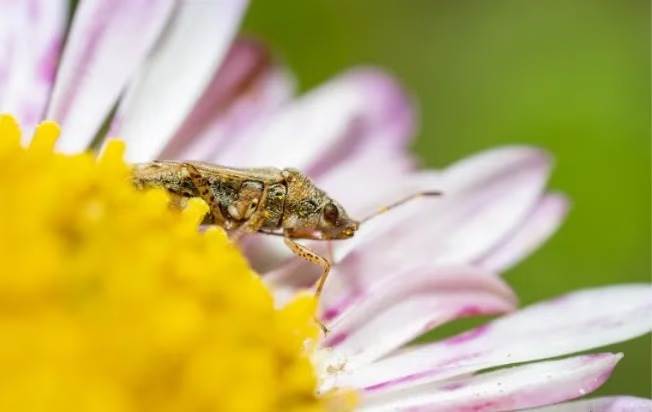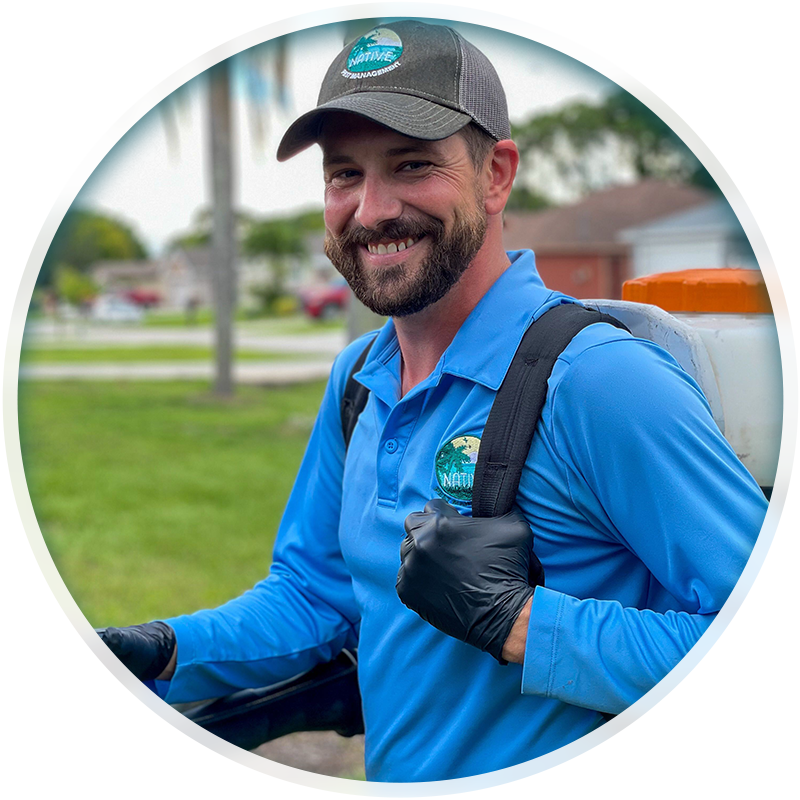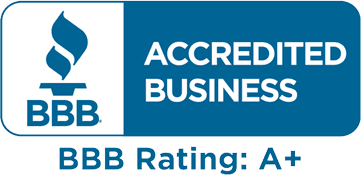
Chinch Bug Identification in Florida
Identifying Chinch Bugs in Florida

Chinch bugs are a common nuisance for homeowners and lawn enthusiasts in Florida, as they can wreak havoc on healthy grass. These tiny insects feed on the sap of grass plants, leaving unsightly dead patches in their wake. In the Sunshine State, chinch bug infestations are most prevalent during the hot summer months and can cause significant damage if not properly managed.
The key to minimizing the harmful effects of chinch bugs in Florida is two-fold: early detection and effective management strategies. Identifying signs of chinch bug damage can help homeowners act quickly and take the necessary steps to contain and control the pests' spread. Implementing sound lawn care practices can also prevent infestations and create a less hospitable environment for these destructive insects.
Key Takeaways
- Chinch bugs can cause significant damage to Florida lawns if not detected early and managed effectively.
- Proper lawn care techniques can help prevent chinch bug infestations and maintain a healthy landscape.
- Identifying chinch bug damage and understanding their life cycle is essential for successful pest control methods.
Identifying Chinch Bugs and Damage
Recognizing Chinch Bug Infestations
Chinch bugs are tiny insects that can cause significant damage to Florida lawns, particularly St. Augustinegrass. To identify these pesky insects, look for both adults and nymphs. Adult chinch bugs are small, about 1/5 inch long, with black bodies and white wings folded across their backs. Nymphs, on the other hand, are smaller and vary in color from reddish-orange to black as they grow.
To spot a chinch bug infestation, keep an eye out for these signs:
- Yellow to brown patches: Chinch bugs cause grass to turn yellow and eventually brown. These patches may start small but can expand and merge into larger areas of damage.
- Presence of insects: Look for chinch bugs themselves in the affected areas, especially on warm, sunny days. They're often found near the soil surface or crawling on grass blades.
- Grass pulling easily from soil: As chinch bugs feed on the grass, they damage the roots, making the grass easy to pull up from the soil.
Damage Patterns in Florida Lawns
Chinch bug damage can be recognized by specific patterns on lawns in Florida. Here are some common signs to look out for:
- Patchy damage: Damage often begins as small, irregular-shaped patches and may spread outward to cover larger areas.
- Sunny areas: Chinch bugs prefer the sun, so damage is typically more severe in sunny areas of the lawn.
- Seasonality: Chinch bug activity and damage usually peak during warm-weather months, between May and September.
To prevent chinch bug damage, it's essential to monitor for signs of infestation regularly and act promptly to control the population. Proper lawn care practices, such as regular mowing, watering, and fertilizing, can also help maintain a healthy, resistant lawn.
-
Do mosquito control services work?
When you choose to have professional mosquito control performed on your property, you will see a dramatic reduction in the mosquito populations around your yard.
By maintaining monthly treatments, these results will continue. We are so confident in the effectiveness of our mosquito control programs that we guarantee them with free follow-up treatments if needed in-between regular services.
-
How do you control mosquitoes in the yard?
At Native Pest Management, our technicians start their mosquito control service by inspecting your landscape for standing water. We then treat the standing water we find every month with biological larvicides to prevent mosquitoes from breeding.
Then, we perform a pet safe mosquito misting of the landscape to eliminate adult mosquitoes and prevent mosquitoes from finding harborage in your landscape. This guaranteed service should last approximately 30 days.
-
Can pest control get rid of mosquitoes?
No pest control treatment will eliminate every mosquito on your property.
However, with our two-step mosquito control service, we have been told by product manufacturers to expect a 90% reduction in the mosquito population.
Since we believe in the effectiveness of our mosquito control programs, we guarantee them with free follow-up treatments if needed in-between regular services.
Life Cycle and Biology
Stages of Development
The life cycle of the chinch bug is a fascinating process. It starts off as an egg, laid by the female adult chinch bug on grass stems. These tiny eggs are usually difficult to see because they blend with the surroundings. After around a week, the eggs hatch and out come the nymphs.
These little nymphs go through five stages, or instars, before they become full-grown adults. Each stage takes about a week, so in roughly 5 weeks, a nymph will transform from a small, wingless creature to a fully developed chinch bug.
This process is known as incomplete metamorphosis, since the bugs don't undergo a drastic change like butterflies or moths.
Chinch Bug Behavior
So, what do chinch bugs actually do? These sneaky pests feed on the sap of grassy plants, such as turfgrass. Both nymphs and adults use their needle-like mouthparts to pierce the stems and suck the sap. This causes damage to the plant, sometimes even killing it.
Chinch bugs are most active during the warmer months, especially in Florida. But they don't like to be out in the open during the day as they're vulnerable to predators. Instead, they prefer to hide within the grassy areas where they feed.
Here's a simple table to help summarize the chinch bug life cycle:
To sum it up, chinch bugs in Florida go through a relatively simple, yet still fascinating, life cycle.
From egg to nymph, and finally adult, these little critters wreak havoc on grassy plants and turfgrass. To keep your lawn healthy and free of chinch bugs, keep an eye out for pale and damaged grass as well as the bugs themselves, hiding in the grass during daytime.
Managing and Controlling Chinch Bugs
When it comes to managing chinch bugs in Florida, a combination of cultural, biological, and chemical strategies are often employed. This section will cover these methods, highlighting their effectiveness and helping you determine the best approach for your specific situation.
Preventative Care and Biological Strategies
Preventative care plays a vital role in preventing and limiting chinch bug infestations. Here are some simple yet effective measures:
- Maintaining a healthy lawn: Proper mowing, watering, and fertilization can help create a more robust turf that withstands chinch bug attacks.
- Choosing resistant turfgrass varieties: Some grass species, like St. Augustinegrass, have been bred to be more resistant to chinch bug damage.
- Monitoring and early detection: Regularly scouting your lawn for signs of chinch bugs or damage can help you take action before the situation worsens.
In addition to cultural control efforts, biological control can also be a helpful tool in managing chinch bug populations. Some natural predators include:
- Big-eyed bugs: These beneficial insects feed on several pests, including chinch bugs.
- Lady beetles: Known for their voracious appetite for aphids, they also prey on chinch bugs.
- Parasitic wasps: Some species of wasps lay their eggs on chinch bug nymphs, thus reducing their numbers.
By attracting and sustaining these beneficial insects in your lawn, you can establish a natural line of defense against chinch bugs.
Chemical Treatments
In cases where cultural and biological methods fall short, chemical control may be necessary. Pesticides, specifically insecticides, are applied to treat infestations. Here are a few things to consider when choosing insecticides for chinch bug control:
- Modes of action: Opt for insecticides with different modes of action to reduce the risk of resistance development.
- Integrated Pest Management (IPM) approach: Utilize chemical control as part of a holistic plan, including cultural and biological strategies.
- Targeted applications: Focus insecticide applications on areas with active infestations rather than applying them uniformly across your lawn.
It's essential to be aware that chinch bugs have been known to develop resistance to certain insecticides. To minimize this risk and ensure the effectiveness of your chemical control efforts, use a combination of insecticides with different modes of action and rotate them regularly.
Additionally, always follow the label's instructions and adhere to the recommended application rates and intervals.
Lawn Care Tips for Preventing Infestations
Proper lawn care is essential in preventing southern chinch bug infestations in Florida. By following these simple yet effective tips, homeowners can ensure their lawns stay healthy and bug-free.
Fertilization: Avoid excessive fertilization, as this can encourage rapid plant growth, making it more susceptible to chinch bug damage. Stick to a balanced, slow-release fertilizer and follow recommended application rates for your lawn type.
Irrigation: Regular, deep watering is a key factor in maintaining a healthy lawn. Aim for providing 1 inch of water per week, either through rainfall or irrigation. Be careful not to overwater, as this can create favorable conditions for chinch bugs and other pests. Install a rain sensor for automatic irrigation systems to prevent unnecessary watering.
Mowing: Keep your lawn at the appropriate height to reduce stress on the grass and reduce chinch bug hiding spots. For most grass types in Florida, maintain a height of 2 to 3 inches. Be sure to keep mower blades sharp for a clean cut, and avoid cutting more than 1/3 of the leaf blade at a time.
Thatch: Thatch is the layer of dead grass and organic material that accumulates on the soil surface. Excessive thatch can provide a suitable environment for chinch bugs, so it is important to keep it under control. Regularly rake or use a dethatching machine to maintain a thatch layer of less than 1/2 inch.
Preventative Care: Implement Florida-friendly landscaping practices by selecting grass varieties that are resistant to chinch bugs, such as St. Augustine, Zoysia or Bahiagrass. Consider using plants native to the region that require minimal water, fertilizer, and pesticides.
Monitoring: Regularly inspect your lawn for signs of chinch bug activity. Pay close attention to areas with direct sunlight and along sidewalks or driveways. Look for damage caused by chinch bugs, such as yellowing or dying grass. If you suspect an infestation, take a few minutes to observe your lawn and check for small, black bugs scurrying around.
By following these lawn care tips, you can greatly reduce the risk of southern chinch bug infestations and maintain a healthy, beautiful lawn in Florida.

Why Choose Native Pest Management?
We Exceed Customer Expectations
-
Pet Friendly & Environmentally ConsciousNative Pest Management applies our pest control products with the safety of your family and pets in mind! We also offer eco-friendly pest control to protect your family and the planet.
-
Local Service ProfessionalsSince 2015, we have served communities in West Palm Beach and all throughout South Florida. Our team is fully licensed, insured, and vetted.
-
On TimeOur team will not only arrive on time, but they’ll also go above and beyond when providing service. It’s what makes us one of the top rated pest control companies in Florida! We strive for complete customer satisfaction every time.
-
Get a 100% Free Estimate
Whether you currently have pests in your home or simply want to start professional pest prevention, take the first step to a pest-free life, and contact us today for your free pet-friendly pest control quote.
-
“Warren took his time with the servicing and was very knowledgeable! Exceptional customer service. I will be requesting him each time.”- Montiea Singletary
-
“Excellent service by Chino from Native Pest Management. Chino went above and beyond to make sure we understood everything about the service and kept us very informed during the process.”- Brand Gonzalez
-
“Truly professionals at what they do. very respectful very knowledgeable and great attitude.”- Jorge Acosta
-
“I called and spoke to the manager, who was polite and courteous, and even though it cost them money to come back out and spray, they did not charge me again, and I was very thankful.”- S. Williams
-
“Dale is the absolute best in the business of pests! My sister and I personally ask for him every single time because he always goes above and beyond.”- Zariah Graham
-
“The technician was very professional. He explained things thoroughly and put me at ease with what was about to happen in my home.”- Anthony Diaz
-
“Native pest management always exceeds my expectations! The people who answer the phone are so nice and accommodating and make scheduling a breeze! The techs are always so nice and do a great job.”- Michelle Cato
-
“Extremely impressed with the technicians I met today. Tony and Jamie. Very thorough and customer oriented. I am expecting great things for my trees and plants.”- Curt Kredo

Native Pest Management's Blog
Want all the latest news or updates? Browse through our blog to read our most recent posts and featured articles.







